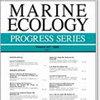生活在北极海藻林下:将加拿大北极地区的软底生物群落与海藻覆盖联系起来
IF 2.1
3区 环境科学与生态学
Q2 ECOLOGY
引用次数: 0
摘要
摘要:海带林是加拿大北极海岸线上的主要栖息地。由于全球变暖,预计海带林的范围和生产力都将发生巨大变化,但它们在支持北极沿岸生物多样性方面所起的作用却鲜为人知。本研究利用包括岩芯样本、视频横断面和环境数据在内的大量数据集,探索了加拿大东部北极地区底栖生物多样性的模式和驱动因素,尤其侧重于海藻覆盖。我们的研究表明,北极许多潮下沿海地区广泛的软质海底与高密度的海带 Saccharina latissima 有关,这些海带通常与 Laminaria solidungula 和 Alaria esculenta 混合生长。这些海带提高了沉积物中无脊椎动物群落的多样性,增加了特定群体的密度,促进了表层下的觅食活动。区域间比较表明,高浊度条件通常导致大型藻类覆盖率低和无脊椎动物丰富度低,而大面积海冰覆盖则有利于大型藻类的高丰度和独特的多样化群落。中等开放水域持续时间和高水体透明度条件有利于形成高大的海藻林,约 70% 的当地稀有类群栖息于此。在这些调查的基础上,我们根据北极无脊椎动物对海藻林栖息地的选择程度,列出了一份北极无脊椎动物分类群清单。尽管地区之间存在差异,但海藻林提高了生物多样性,并推动了加拿大北极地区独特的底栖动物群落的发展。鉴于海藻林的生态意义和潜在脆弱性,我们建议努力将海藻林纳入海洋保护区,并尽量减少这些栖息地内或附近的人为破坏活动。本文章由计算机程序翻译,如有差异,请以英文原文为准。
Living under Arctic kelp forests: linking soft-bottom communities to kelp cover in the Canadian Arctic
ABSTRACT: Kelp forests are dominant habitats along Canadian Arctic coastlines. While their extent and productivity are expected to change dramatically due to global warming, their role in supporting Arctic coastal biodiversity remains poorly explored. Leveraging an extensive data set encompassing core samples, video transects, and environmental data, this study explores the patterns and drivers of benthic diversity, particularly focusing on kelp cover, across 4 Eastern Canadian Arctic regions. We show that the widespread soft bottoms in many subtidal coastal Arctic areas are associated with high densities of the kelp Saccharina latissima, often growing in mixed stands with Laminaria solidungula and Alaria esculenta. These kelps enhance the diversity of invertebrate communities thriving in the sediment below, increasing densities in specific groups and promoting subsurface feeding activity. Interregional comparisons indicate that high turbidity conditions typically lead to low macroalgal cover and low invertebrate richness, whereas extensive sea ice cover can favor high macroalgal abundance and unique diverse communities. Conditions of intermediate open-water duration and high water clarity support tall kelp forests, hosting approximately 70% of local rare taxa. Based on these surveys, we provide a list of Arctic invertebrate taxa according to their level of selectivity for kelp forests as habitats. Despite variation among regions, kelp forests enhance biodiversity and drive unique benthic communities in the Canadian Arctic. Due to their ecological significance and potential vulnerability, we recommend efforts to integrate kelp forests into marine protected areas and minimize human-induced damaging activities within or near these habitats.
求助全文
通过发布文献求助,成功后即可免费获取论文全文。
去求助
来源期刊

Marine Ecology Progress Series
环境科学-海洋学
CiteScore
5.30
自引率
8.00%
发文量
238
审稿时长
3 months
期刊介绍:
The leading journal in its field, MEPS covers all aspects of marine ecology, fundamental and applied. Topics covered include microbiology, botany, zoology, ecosystem research, biological oceanography, ecological aspects of fisheries and aquaculture, pollution, environmental protection, conservation, and resource management.
 求助内容:
求助内容: 应助结果提醒方式:
应助结果提醒方式:


